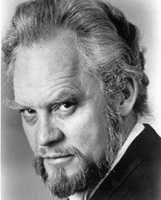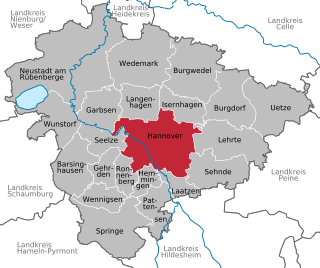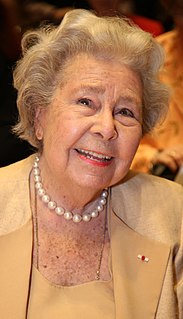
Seattle Opera is an opera company located in Seattle, Washington. Founded in 1963 by Glynn Ross, who served as the company's first general director through 1983, Seattle Opera's season runs from August to late May, with five or six operas offered and with eight to ten performances each, often with double casts in major roles to allow for successive evening presentations.

Colin Graham OBE was a stage director of opera, theatre, and television.

René Kollo is a German operatic tenor, especially known for his Wagnerian parts. In addition to Heldentenor roles, he performed in a wide variety of operas and operettas during his career. Kollo also made several operatic recordings.
Simon Estes is an operatic bass-baritone of African-American descent who had a major international opera career beginning in the 1960s. He has sung at most of the world's major opera houses as well as in front of presidents, popes and internationally renowned figures and celebrities including Bill Clinton, Richard Nixon, Boris Yeltsin, Yasser Arafat, Nelson Mandela and Desmond Tutu. Notably, he was part of the first generation of black opera singers to achieve widespread success and is viewed as part of a group of performers who were instrumental in helping to break down the barriers of racial prejudice in the opera world.

Thomas Stewart was an American bass-baritone who specialized in Wagnerian roles.
Jonathan Kent CBE is an English theatre and opera director. He is known as a director/producer alongside Ian McDiarmid at the Almeida Theatre from 1990 to 2002.
Waltraud Meier is a Grammy Award–winning German dramatic soprano and mezzo-soprano singer. She is particularly known for her Wagnerian roles as Kundry, Isolde, Ortrud, Venus, Fricka, and Sieglinde, but has also had success in the French and Italian repertoire appearing as Eboli, Amneris, Carmen, and Santuzza. She resides in Munich.
Karl Ridderbusch was a German operatic bass, associated in particular with the music of Wagner. He was recognised as a notable exponent of the role of Hans Sachs.
Bernd Weikl is an Austrian operatic baritone, best known for his performances in the operas of Richard Wagner.
Willy Decker is a German theatre director, particularly known for his opera productions. He staged the world premieres of Hans Werner Henze's Pollicino, Antonio Bibalo's Macbeth, and Aribert Reimann's Das Schloss.
Margaret Harshaw was an American opera singer and voice teacher who sang for 22 consecutive seasons at the Metropolitan Opera from November 1942 to March 1964. She began her career as a mezzo-soprano in the early 1930s but then began performing roles from the soprano repertoire in 1950. She sang a total of 39 roles in 25 works at the Met and was heard in 40 of the Metropolitan Opera radio broadcasts. She was also active as a guest artist with major opera houses in Europe and North and South America.
Peter Konwitschny is a German opera and theatre director.
Anja Kampe is a German-Italian operatic soprano, born 1968 in the GDR. She is notable for her performances in major opera houses of the works of Richard Wagner and other German and Austrian composers.
Carlos Alexander was a dramatic baritone and stage director of opera, best known as a singing-actor in German repertoire.
Robert Gambill is an opera singer (Heldentenor).
Alison Hagley is an English opera singer.
Tom Fox is an American operatic baritone who has had an active international performance career that has spanned five decades. He has sung leading roles at many of the world's major opera houses, including the Berlin State Opera, La Scala, and the Metropolitan Opera. While he has performed a diverse range of roles in numerous languages during his career, he has become particularly associated with the works of Richard Wagner.
John Del Carlo was an American bass-baritone who had an active international opera and concert career from the 1973-2016. Music critic F. Paul Driscoll, wrote that "Del Carlo had the distinction of being not only one of the busiest artists in opera but one of the best liked, beloved throughout the U.S. by audiences and by his colleagues for decades." He was particularly active with the San Francisco Opera where he performed regularly from 1973-2015, and with the Metropolitan Opera where he appeared in more than 300 performances in 21 seasons from 1993-2016. He also frequently appeared at the San Diego Opera and the Seattle Opera, and gave performances at important opera houses internationally, including the Lyric Opera of Chicago, the Paris Opera, the Royal Opera House in London, and the Zurich Opera among many others. A skilled actor, Opera News stated that "Del Carlo made a career specialty of bringing authentic character to roles that are often dismissed as comprimario parts; in Del Carlo’s shrewdly judged performances, [these parts] became authentic star turns."

Wolfgang Rennert was a German conductor. He focused on opera, at the Oper Frankfurt, Staatsoper Berlin, Mannheim National Theatre and the Semperoper, among others. He premiered operas, such as Louise Talma's Die Alkestiade in Frankfurt, and Rainer Kunad's Sabellicus in East Berlin. Regarded as a specialist in Mozart, Wagner and Strauss, he was a guest conductor at international opera houses including the Royal Opera House in London, the San Francisco Opera and the Dallas Opera.
Hans Günter Nöcker was a German operatic bass-baritone who was based at the Bavarian State Opera for decades, performing in several world premieres including Aribert Reimann's Lear, and also had an international career.

















